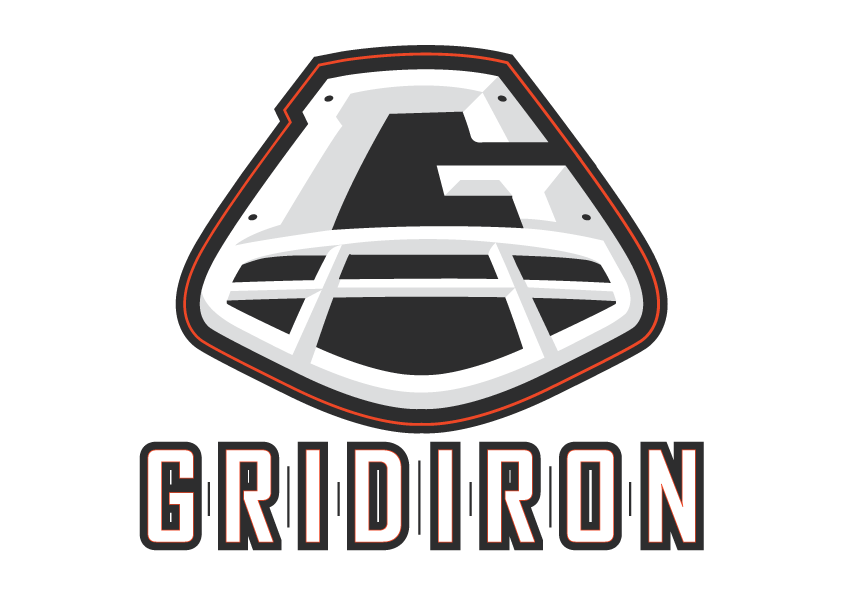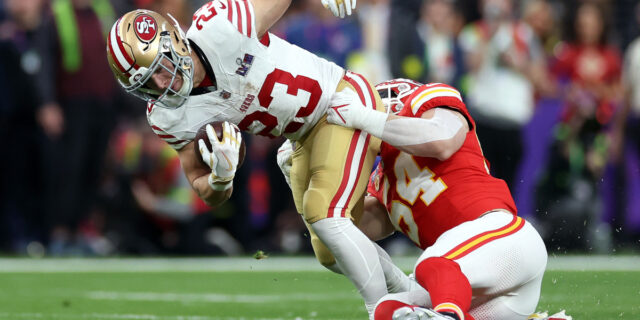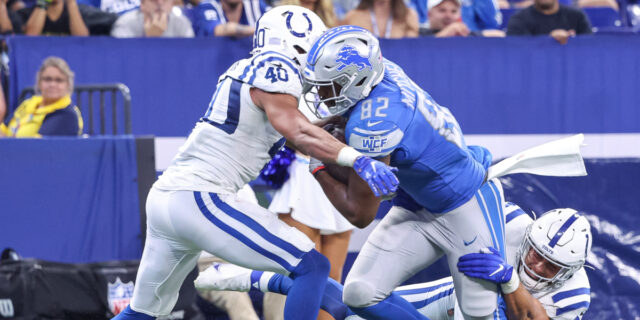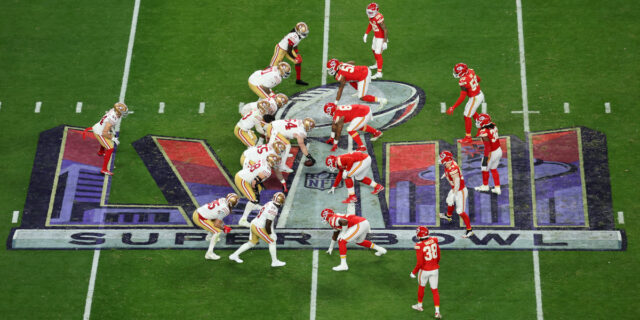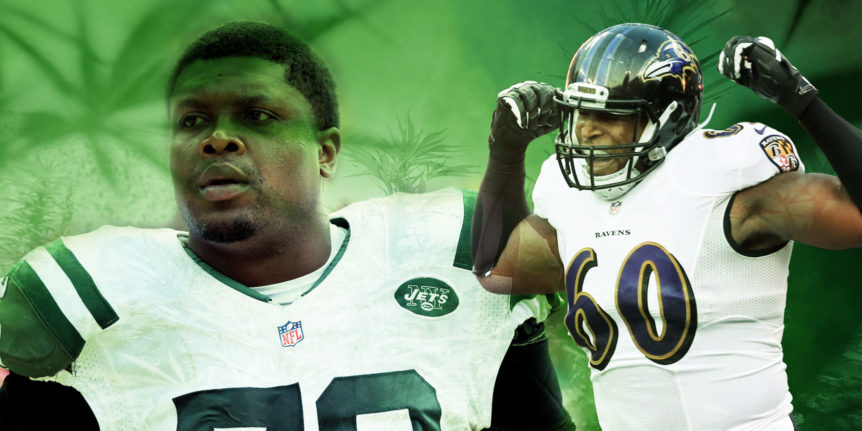
WHA’ YA GANJA DO?
One of the Super Bowl’s great paradoxes is that many of those glued to their screens for the world’s biggest annual sporting event aren’t tuning in for the game itself. For such is the nature of the beast that, in many people’s minds, events at halftime supersede those on the gridiron.
Its appeal is so transcendent that this is the one day of the year just as important to those in the NFL’s Park Avenue offices as pristinely dressed executives of Madison Avenue; where Don Draper meets Don Goodell, if you will. For the 60 30-second advertising slots surrounding Super Sunday boast genre-defining value.
Those around Super Bowl LIII were taken up by 54 advertisers, at an average cost of around $5.25million. There’s another irony, of course, in the fact most companies and products showcased have little relevance to football, their products about as far removed from the lives of NFL players as today’s behemoth Super Bowls are from the original in 1967. One final contradiction, meanwhile, is a commercial rejected by the powers-that-be last year was promoting something that, in time, might provide not only a lifeline for the NFL’s players – but the game itself.
Former NFL left tackle Ryan Clady tells Gridiron: “I didn’t get into smoking until college. We got tested randomly but I experimented, like you do in college, so I’d been around it a little bit. I tried it out and soon came to like it. Obviously in college we couldn’t smoke it that much because we got tested so much. Then when you get into the league where you’ve got just that one test a year; I would indulge more.
“It helped me so much, sometimes just sleeping on planes. When we lost to the New England Patriots one year in the playoffs, it’s two or three in the morning and you have a four-hour flight home and you’re just exhausted and your body hurts, and you take a little edible and, bam, you’re asleep. I just loved the recovery aspect.”
The commercial not aired, made by Acreage Holdings, told three stories of people benefitting from medicinal cannabis. The first was a boy whose prescribed medication for seizures didn’t work; the second a man who suffered from an opioid addiction after 15 years of use following surgery; and the third a veteran amputee. But it was denied by CBS, who told Acreage the advert was ‘not consistent with the network’s advertising policies’, and they don’t ‘currently accept cannabis-related advertising’. That in itself is not so surprising, given cannabis remains a Schedule 1 substance under US Federal law. Why would a television network advertise a federally illegal substance that ‘has a high potential for abuse’ and ‘no accepted medical use’?
Not only are those statements about cannabis questionable, more states are legalising medicinal and recreational use. To such an extent only three teams play in areas where marijuana is fully illegal, nine where it’s legal medicinally and recreationally, and 20 where it’s available medicinally to some degree. What’s more, former and current NFL players are advocating for the drug – or, more accurately, plant. Thus, the advert seemed perfectly placed to readdress an ongoing issue.
For all that proved a missed opportunity to ignite the conversation, there are still those working to attempt to force change. David L. Nathan, MD, DFAPA and founder of Doctors for Cannabis Regulation (DFCR), tells Gridiron: “The great majority of doctors now acknowledge the medical uses for cannabis.”
DFCR was founded by Dr. Nathan as an association not necessarily to be pro-cannabis, but anti-prohibition. “In our declaration of principles,” he says. “there is a signatory. If you’re a doctor, there is someone on that list who is either your teacher; somebody whose papers you read or does research you know; or is a professor at a medical school you respect. You can’t just write off this group, and that’s how it has gone. We’ve become the voice for doctors seeking reform for cannabis laws and legalisation.”
He adds: “About two and half years ago, Eugene Monroe and Derrick Morgan got in touch with us and asked if we’d be willing to work with them. It’s really turned out to be a great combination in terms of bringing awareness to the issue as a whole, not just for the active players but also because the NFL is a microcosm of our county which has a lot of people doing something that is nominally not allowed.”
Former tight end Martellus Bennett claims 89% of the NFL uses cannabis. More people, like Dr. Nathan or Clady, suppose the number is closer to around 60%, while Monroe isn’t shy either: “Some of the faces of the NFL, the biggest stars of the game, consume cannabis.”
But why are more than half of all NFLers using a substance that can lead to serious punishment? “There are affirmative reasons to use cannabis,” explains Dr. Nathan. “But even if there weren’t, this is a drug that people should not be punished for making the adult decision to use. There are three main uses for medicinal cannabis in relation to the NFL: pain management, CTE/head trauma, and as a way of getting off opioids.
“In general, the strength of evidence is greatest when you talk about pain. The evidence isn’t as strong as we’d want, but there are studies that show it does work.” That evidence ‘conclusively’ or ‘substantially’ shows cannabis or cannabinoids are effective ‘for the treatment of chronic pain in adults’, according to the National Academies of Science, Engineering and Medicine’s 2017 study.
By the end of Clady’s career, he’d sometimes smoke the night before games, and in the three days afterwards, while Monroe didn’t utilise it as part of his recovery and wellbeing until post-retirement. “Looking back I wonder how things would have gone if I knew just how beneficial it was and how to use it effectively, as I do now,” he concedes. “I think it could have made a huge difference in my career, just knowing the type of relief I’d get without all the side effects that detract from your maximum performance.”
His final point is crucial and ties in with the third main suggested use: getting off opioids – or in some cases avoiding them altogether. While Dr. Nathan concedes cannabis isn’t definitively as strong as opioids such as morphine, studies have shown it to be much better tolerated, with less threat of addiction.
Monroe adds: “I don’t think I ever developed any issues with addiction, but if I was prescribed them I never said no – and I was prescribed them often. That’s my story, but there are many more that are different. Guys are injured and no longer playing, but still dealing with the pain from injury. I’ve heard of guys that are a few hundred pills in a day; I can’t even imagine that.”
Like Monroe, Clady never struggled with opioids himself, but knows the issues. “I’ve seen how addictive they can be and that stemmed from my college roommates that were a little too heavy with them,” he says. “I never really got addicted to them or was heavily on them so I can’t really speak to that, because I would rather smoke weed. It’s so much safer than opioids – there’s an epidemic in this country right now. Not just in sports, but people in general. The NFL should be in the forefront and help with the movement to eradicate these pills.”
The research backs Clady up: “There’s evidence that in states that legalise medical cannabis,” adds Dr. Nathan, “the percentage of people dying from opioid overdoses goes down by as much as 25%. Typically in these types of studies you’ll see a 5% or 10% change.”
What’s more, cannabis can also be used in place of nonsteroidal anti-inflammatory drugs (NSAIDs) like ibuprofen, aspirin, naproxen and NFL favourite Toradol. “NSAIDs are not psychoactive (like opioids) but they can do a number on your stomach and also lead to bleeding issues,” adds the doctor. “It’s not as though those medications are completely benign. It’s about offering players options. It’s not just opioids and NSAIDs; there’s another option they can choose, which many NFLers are doing anyway.”
The importance of this solution comes into sharper focus amid the looming threat of concussions and Chronic Traumatic Encephalopathy, or CTE. As organisations on both sides of the pond hint at the forthcoming ability to diagnose the degenerative brain condition in the living – perhaps sooner than anticipated – the NFL’s fight to counter it takes on extra importance.
Is cannabis a potential counter? “There is research that shows, circumstantially, cannabis could be helpful in CTE,” adds Dr. Nathan. “Research shows it has anti-inflammatory properties and may be helpful immediately following a concussion. There’s research into animals that shows it may reduce the impact of brain trauma.”
Altering policies, then, would seem a win-win, ridding the NFL of an unfair system in which multiple players are serving suspensions for smoking by virtue of having been caught and potentially striking a blow to the biggest threat facing the organisation. Clady adds: “We only get tested once a year – they don’t give a f*** about marijuana but, at the same time, they don’t want to be on the end of stigma: ‘Oh, the NFL is letting its players smoke weed’. They don’t want to have a bad look on their part.”
So what gives? The answer is two-part. Firstly, there’s the political climate to consider; cannabis isn’t completely legal nationwide – yet – and redefining the boundaries of acceptability is a process. Dr. Nathan suggests people are still scared to appear ‘soft on drugs’, and attributed the ‘hard’ stance on cannabis to a ‘misplaced moral objection’ rooted in a public health issue. “When people say that cannabis’ prohibition is because of the health issues, they’re generally just misinformed or they’re looking for a justification for what they otherwise feel is proper behaviour,” he adds. “It’s not clear whose interests the NFL are trying to defend. I think it’s, again, a kind of institutional inertia that we also see in medical associations and governments.”
Monroe adds: “We know now that cannabis isn’t this dangerous drug that everyone has been lied to about – the NFL continues to live in that ancient ideology. We’ve seen generation after generation of NFL players fighting for their medical rights and here they are again with athletes doing as much as they can trying to learn about cannabis, reaching out to me, doing their own research, because the NFL refuses to move with the times and educate their players on all these things.”
Secondly, there is the ongoing brinkmanship between league and players’ union that always exists ahead of Collective Bargaining Agreement negotiations. With the current CBA running out after the 2020 campaign, the NFL isn’t going to just give away a bargaining chip.
“My feeling about that is players’ health should never be negotiable and that’s exactly how the NFL are talking about it,” said Dr Nathan. “What does it say about the NFL’s leadership when they talk about player health as being a commodity? When they claim to be about player health, the way to do that is to have the decision about cannabis use be made only on scientific grounds, not based on whether the players are willing to allow the use of their image on products in exchange for cannabis. That’s morally indefensible.”
Monroe adds: “The players are up against an unlimited force – the NFL owners. I hope the players understand this isn’t an issue for them to negotiate but rather demand. We don’t want to get through another CBA and have 10 more years of cannabis prohibition in the NFL.
“The players need to demand this change and they’ve been silent about it. And silenced by the league. They’ve been mocked by Roger Goodell time and time again on this issue. When do the players decide they’re going to continue to medicate for the entire year? If the whole team, from every team, tests positive then what happens?
“That may sound extreme but it’s not any more extreme than what the NFL has done. For example, suspending Seantrel Henderson who used cannabis to battle back from Crohn’s disease after a surgery removing a portion of his intestines. So what’s extreme here? I think we need that type of solidarity, the players will need it anyway going into the CBA.”
As more states moving to legalise cannabis coincides with current and former players speaking up, the issue is moving from taboo to talked-about. But will the NFL agree? Perhaps we’ll know when the 60 commercials for Super Bowl LIV are confirmed.
This article originally appeared in Issue 50 of Gridiron magazine – for individual editions or subscriptions, click HERE
